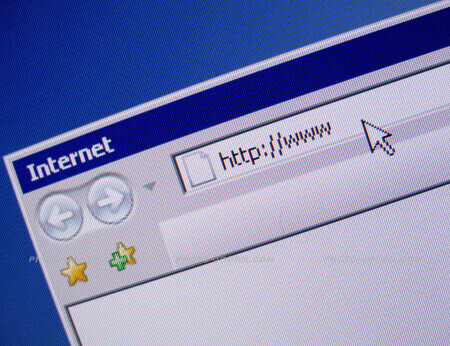The Federal government’s plan to force all internet service providers (ISPs) to filter online pornography and violent content will see Australians access to the internet controlled in the same manner as users in China, Burma, Vietnam, North Korea, and Saudi Arabia experience.
In other words, the plan, aimed at protecting children from non-childlike content, will see the rights of all Australian internet users eroded to a level that equals the worst levels of internet censorship in the world.
While internet users not wanting their service filtered will be able to contact their ISP and opt out of the porn filter feature, the plan has the potential to dramatically impinge peoples ability to use the internet and will give the Australian government an unprecedented level of internet censorship power.
ISPs are also warning that such a plan to filter internet pornography will see internet access speeds reduced to a crawl.
ISPs, users spurn censorship
For an industry that already suffers from considerable criticism from users over high pricing and slow access speeds the compulsory internet pornography filtering and resulting slow down in network speed is sure to see increased dissatisfaction from “clean feed” users forced to subscribe to higher cost service plans to achieve even moderately acceptable internet access speeds.

Online civil libertarians are concerned that the Federal governments’ online porn filter places the freedom of the internet at stake, while a large question mark hangs over how successful such pornography filtering will be.
Dale Clapperton from the internet user group Electronic Frontiers Australia (EFA), said mandatory ISP filtering of internet pornography will not only erode internet freedom but also will not improve online safety for children.
According to Mr Clapperton the internet porn filter will lull parents into a false sense of security. If parents are concerned at the content their children will be exposed to online they “should not allow their children to use the internet unsupervised”, he said.
Under the plan the Australian Communications and Media Authority (ACMA) will prepare a blacklist of unsuitable sites and all ISPs will be required to block access to these on internet services provided to households and schools.
Communications Minister Stephen Conroy said the “clean feed” will prevent users accessing prohibited content. Everything possible has to be done to shield children from violent and pornographic online material.
In reality the dangers posed by the government plan are considerably greater than just censoring internet pornography access and has much wider ramifications.
Objections to “Clean Feed” grow
More importantly, the danger to children doesn’t come from them accessing internet pornography sites and viewing images of people having sex, but rather from online chat rooms, something the government’s porn filter plan will not and cannot control.
In addition, what at the beginning starts off as a porn filter to prevent children having access to “unsafe websites”, can easily later be expanded to filter and censor access to other online content, according to whatever the government of the day dictates.
For example, access to news and information sites a future government deems unacceptable could be blocked if the government doesn’t like the content.
| Presentation that points out the dangers of the Rudd Government’s plan to censor the Internet at the ISP level PaulusAlexus |
The internet pornography filtering system could also be expanded to stop content such as movies, music, and software from being downloaded.
The software, motion picture distribution and music industries will, no doubt, be quick to rush off to the courts and say if the Government can stop internet pornography from being accessed then ISPs can also stop the illegal downloading of their copyrighted products as well.
In addition, the requirement for users having to apply to have their internet service unfiltered sets a dangerous potential for them to be unfairly labelled as aficionado’s of internet pornography, when in reality many may just be desirous of faster internet speeds.
Internet access and content is something democratic governments should keep their hands off. There is ample software products already available to prevent children accessing unacceptable content such as internet pornography and it is only a matter for parents to bother taking the time to find them out and then have the willingness to purchase and install.
Parental controls
For Macintosh users the parental controls built into Apple’s OSX 10.5 Leopard operating system allows parents to not only limit access to pre-defined sites, but also to restrict email and online chat to a list of pre-approved addresses and accounts. Parents can also limit the times that children can access the internet and the time that they spend online.
The parental controls also keeps a log of all sites visited, websites that have been blocked, applications used and can automatically send an email to a pre-determined account if the child attempts to exchange email or chat with someone not on the pre-approved list.
While the compulsory ISP pornography filtering might give people like Family First Senator Steve Fielding, who has campaigned heavily for ISP pornography filtering, a nice warm and fuzzy feeling, the move is one that has far greater ramifications than what many people are presently considering.
More importantly, as was seen during the recent pro-democracy protests in Burma, internet filtering does not work. The only way the government there was able to prevent news from getting out was to shut down all international telephone lines.
Today, human rights activists in China, Iraq, Vietnam, North Korea and other countries manage to circumvent strict internet censorship policies imposed by their governments to get their messages out to the world.
Having worked in countries with internet filtering systems in place I can say from first-hand experience that it does not work. I have always been able to access whatever content I want, despite whatever internet filters were in place.
The end result of the Australian government sticking its nose into internet content is that people will do the same as they did before the internet became so popular in the last 10 years and sign up with ISPs in other countries.
Misplaced priority

This will have the dual effect of not only taking money away from the local ISP market, but also tie-up international telephone circuits being used for data transmission instead of being available for voice calls.
A side benefit though is, given the low rates offered by some private telecommunications companies around the world today, users might find the data transfer speeds faster and the costs on a par with what they pay now; while not having the concerns as to who is looking at what data they are sending or receiving.
This last point is somewhat of a moot one. The Defence Signals Directorate (DSD) has long been able to monitor every single telephone, telex, facsimile, radio, and data transmission coming into and going out of Australia.
As owners of the Australia’s largest, most powerful and fastest supercomputers, capable of processing billions of bits of data every second, nothing is transmitted by any electronic format that the DSD cannot intercept.
What at first blush sounds like a wonderful idea, is one that is fraught with dangerous possibilities and is a path Australia should not head down in too much or a rush.
Responsible parenting required
Rather than introducing legislation and potentially onerous requirements on ISPs to filter internet pornography, what is really required here is responsible parenting and parents who either take more of an interest in what their children do online, or are responsible enough to inform their children of the potential dangers of internet use.
It’s also time the Australian population took responsibility for itself, instead of continually shirking personal responsibilities and looking to government for solutions.
The good senator Fielding should get off his pork barrel and look for more worthy issues to campaign on, lest Australia becomes the first country in the world to voluntarily give its government the right to censor the internet.
Internet pornography is not a government problem. It is a problem for those people who don’t want to look at it, or who don’t want their children to look at it. In any event, paedophiles don’t troll for victims on pornography sites, they lurk in chat rooms.
Pornography facts
- Porn only accounts for some 12 per cent of the pages on the internet.
- US revenue from internet porn was $US2.84 billion in 2006.
- There are an estimated 266 new internet porn sites put on the internet every day.
- 70 per cent of porn site visits occur during the 9 to 5 working day when children are at school.
- The number of Chinese web bloggers in 2006 went from 17.5 million to 47 million. If each person wrote eight blog pages this would exceed the number of porn web pages that are estimated to exist on the internet (estimated at 372 million).
More information and why the compulsory internet pornography filtering by the Australian government will be infective can be read here: http://www.efa.org.au/censorship/mandatory-isp-blocking/#SS_2
Feature video thelamecamel
Feature photo Dedra Wolff
He has spent extensive periods of time working in Africa and throughout Southeast Asia, with stints in the Middle East, the USA, and England.
He has covered major world events including Operation Desert Shield/ Storm, the 1991 pillage in Zaire, the 1994 Rwanda genocide, the 1999 East Timor independence unrest, the 2004 Asian tsunami, and the 2009, 2010, and 2014 Bangkok political protests.
In 1995 he was a Walkley Award finalist, the highest awards in Australian journalism, for his coverage of the 1995 Zaire (now Democratic Republic of Congo) Ebola outbreak.
Most recently he was the Thailand editor/ managing editor of AEC News Today . Prior to that he was the deputy editor and Thailand and Greater Mekong Sub-region editor for The Establishment Post, predecessor of Asean Today.
In the mid-80s and early 90s he owned JLF Promotions, the largest above and below the line marketing and PR firm servicing the high-technology industry in Australia. It was sold in 1995.
Opinions and views expressed on this site are those of the author’s only. Read more at About me
Latest posts by John Le Fevre (see all)
- Kaavan’s great escape photo special (video & gallery) – November 30, 2020
- A real life fairy tale: Cambodia provides sanctuary to Kaavan, the world’s loneliest elephant (video & gallery) *updated – November 30, 2020
- Death for corruption and press freedom abused as Thailand continues Nth Korean-like slide – July 23, 2015
- Thailand’s young rice farmers boost income, slash costs with switch to organic, AWD method – May 29, 2015
